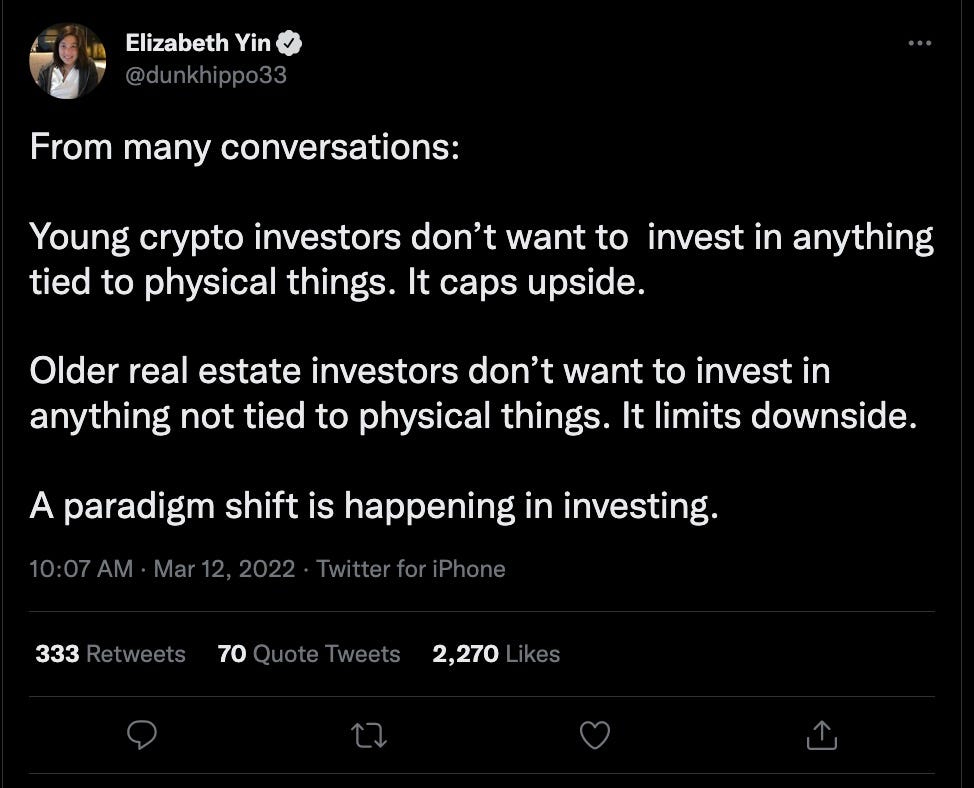I’m increasingly convinced that in a world of blowhards who overpromise and underdeliver, to underpromise and overdeliver is a superpower.
Not only is it a superpower, it’s one that compounds and proves its power over time and relationships and results.
Let me start by saying I used to think the opposite was true. Despite this being one of the oft-repeated pieces of advice early in my career when I was a brand new baby sales rep, when I transitioned from animal health sales to startup founder I temporarily left that advice behind as too old school and short sighted….
I thought that painting a big picture of what’s possible (even when my intuition told me it was probably impossible) showed ambition to do big things which could then unlock resources to actually make big things happen. Financial projections up and to the right, further and faster.
Now I tend to think over-ambition just looks naive.
(I hope I can attribute that to the increasing pragmatism that comes with experience, and not cynicism creeping in🤞🏽)
It’s not that the effective under-promiser over-deliverers play small.
It’s that they can separate the future from the present, and they can distinguish between their aspirations and their realities. And they don’t shy from those gaps.
Under-promiser over-deliverers can tell the difference between a base-case scenario, a best-case scenario, and an “only in our wildest dreams” scenario.
Under-promiser over-deliverers still have a compelling vision, especially under-promisers who raise venture capital. The venture game is, by definition, one of big risks and big rewards so a big reward has to be possible.
Under-promisers still sell a big vision with plenty of ambition, but they capture the nuance of what it will take to make the vision a reality.
It’s hard not to be energized by a person/team/company with genuine enthusiasm and commitment to solve big problems. Maybe this whole under-deliver vs over-deliver idea is just all contextual. Know your audience. Know when to paint the grandiose vision and when to manage the reality of what it will take to get there.
Maybe it's all about managing expectations.
There are at least 4 stakeholder groups whose expectations have to be managed well in the pursuit of doing something new and hard and unpredictable:
(1) Early customers.
While it seems obvious that you’re playing with fire as an early-stage company to overpromise and underdeliver, it’s not at all uncommon for agtech startups to create unmet expectations with early customers. Get the right early customers and they have a lot of grace for glitches in an early product, they do NOT usually have a lot of grace for a big gap between reality and the sales pitch.
(2) The team.
The earlier stage the company is, the more the team needs reasons to believe we are on the right track. Whether that is in the form of product development milestones or commercial milestones is irrelevant (for this convo), the main thing is managing the team’s expectations to maintain morale and commitment. Working 75 hours a week is fine as long as there’s progress being made and a light at the end of the tunnel that it will pay off at some point.
Once your team loses faith in your misguided expectations, trust quickly erodes and suddenly a founder finds themselves scrambling to recruit new talent….which of course slows the company’s progress further.
(3) Yourself, as a founder.
This might be the most important of the 4. Being a founder is really hard, mentally and emotionally. A huge part of avoiding burnout is managing your own expectations so that when something takes an extra 6-18 months, you have a frame of reference to handle it. (Have I mentioned how I learned this the really, really hard way??)
(4) Investors.
“There’s more fiction written in Microsoft Excel than Microsoft Word”
I recently heard someone say that and it’s been living rent-free in my head ever since. It’s funny bc its so so so true, isn’t it?
Anyway, I’ve been thinking about this whole idea lately in the context of startup founders, but maybe it applies to…everyone?
Not all heroes wear capes, but maybe they all have the superpower of consistently underpromising & overdelivering. #goals



